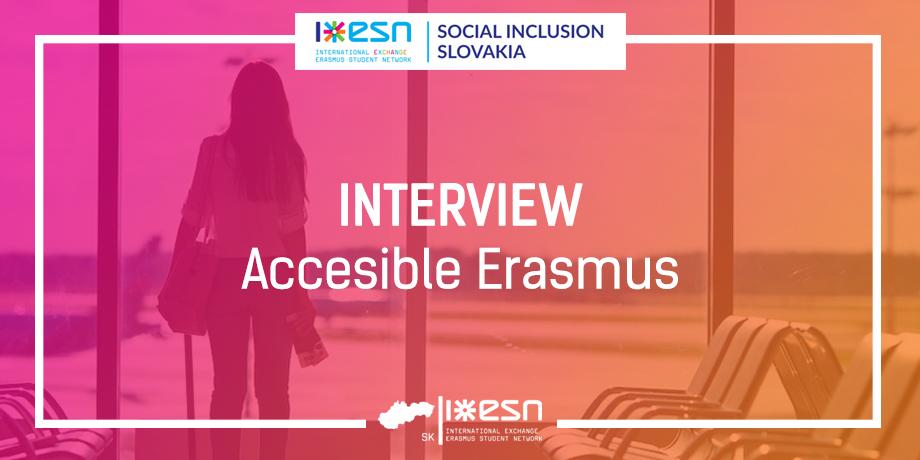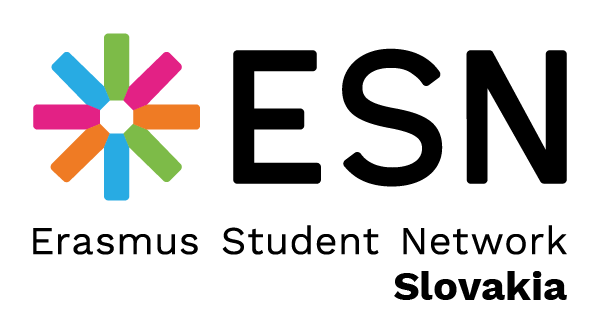
Accesible Erasmus - Interview
ACCESIBLE ERASMUS
Can you please introduce yourself, who are you, what do you study? Which country did you choose as your Erasmus destination?
My name is Lenka Maruščáková, in 2013 I finished my medical studies at Faculty of Medicine, Comenius University in Bratislava. Then I did my PhD. studies at the Institute of immunology, Faculty of Medicine at Comenius University in Bratislava. Now I work as research employee at the same institute. In the 3rd year of my medical studies I participated in Erasmus exchange. I studied 5 months in Paris, at the Faculty of Medicine, Univerité Paris- Sud 11.
Can you please describe your disability?
I have a physical impairment. My medical condition is fragile bones (osteoporosis). Since my childhood I had problems with walking, I had several fractures of my limbs. I had to do exercises and take the treatment (vitamin D and calcium). Because of my fragile bones and weak muscles, I needed to use a wheelchair. However, I started to get better with walking and nowadays I use just a walking stick. But, I still have problem with a lot of stairs and long distances for walking on my own.
Where did you find an opportunity to go on Erasmus? Did you receive any personal assistant or any other help?
I always wanted to go study abroad. So, I did know already at grammar school about Erasmus Exchange possibility. I studied French and my dream was to go to study to Paris, at least for some part of my studies. So, as I mentioned, in my 3rd year I go for 5 months to study to Paris. My sister was at that time in her 5th year of management studies, so we arrange all thinks to be together in Paris. I could not be able to manage the life in Paris just on my own. So, my sister helped me a lot.
What skills did you gain when you were on Erasmus?
Since I went to Paris for studying, and I like studying, I appreciate the opportunity for getting knowledge in medicine in different country, in this way a different approach to study medicine. I improved my French. Beside those, because of my health problems, I had to learn overcome a lot of new limits in life. That make me stronger and braver.
What were your main challenges during mobility?
The accommodation was quite far from the faculty and the faculty had a big area. The city transportation was the most challenging for me.
Do you think it’s easy to go on Erasmus now?
I think, it is not easy – in the exact meaning of the easiness. Before the exchange I needed to make quite a lot of communication and paper-work and management of my special needs in advance, all of that beside my full-time medical school schedule at Slovakia. However, Mr. Mendelova, coordinator for the students with special needs at Comenius University in Bratislava was very helpful in these things. And, I am very thankful for special Erasmus grant for students with special needs. I think it worth a notion that my expenses during my Erasmus exchange were higher than in the case of health student because, for example necessity to use taxis more times because of not-easy transport for me, the person with walking problems.
How can Erasmus evolve to include more people with disabilities?
In global, I did not think that it is not manageable to go to Erasmus Exchange event with health problems. And if more people would go on such Exchange, they could share the experience and give advice for others. I think discussions and communication would be helpful, even for young student with no such an experience, that are afraid of all things that could happen to them. To make emphasis to be prepared and informed for the students could reduce the fear.
What would be your message to future Erasmus students with some kind of disability?
After my Erasmus exchange I started to travel more and be more active generally, I actively participated at several international congresses and short-term journeys. So, for me, it was something like a stepping stone. In conclusion, I can just say: It’s worth it.
Interviewed by Katarína Kokošková

Follow us